
RAWANG, Oct 4 — There are so many food delivery businesses these days that one can become quite blasé to them.
Yet how often does one hear about one selling homemade Fook Chow frozen food such as Eight Treasures (Sweet Glutinous Rice with Yam Paste) and Sour & Spicy Fish Maw?
This is the draw of Ruixiliangpin’s carefully crafted online menu that includes other Fook Chow delicacies such as LaoMaZi Sweet Sambal and Sweet & Sour Steamed Pork Ribs.
Ruixiliangpin is the brainchild of Rawang-based and Sitiawan-born Kevin Tee, who used to run Ah Tee Private Kitchen, a successful "living room restaurant” that focused on Fook Chow (also known as Hock Chew) cuisine. Then the pandemic hit and he had to learn how to pivot, and learn quickly.
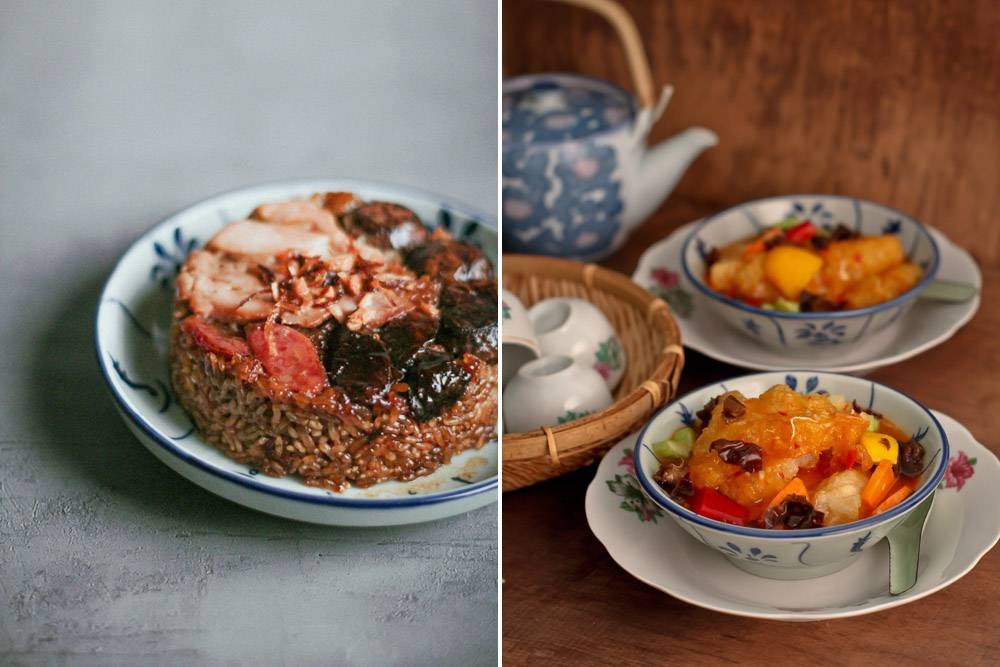
"When the lockdowns began two years ago, we had to stop operating our private kitchen,” Tee explains. "Many of our regular customers requested that we cook and deliver to them. After much discussion, we decided to launch an e-commerce platform to make it more convenient for our customers to purchase our dishes.”
The pandemic thus became an opportunity for Tee to rebrand his business as well as creating a new image to present his food products, including the best selling Sour & Spicy Fish Maw and LaoMaZi Sweet Sambal ("Lǎomāzi tián sān bā”).
He says, "I think the reason for these two products’ popularity is because they suit our Malaysian taste buds. Both contain a lot of common, comforting flavours such as sweet and sour, spicy and savoury.”
Naturally, the process of developing recipes for products that are meant to be served fresh (i.e. at home or in restaurants) is different from those that have to be frozen and packaged before being delivered and reheated by the customers.
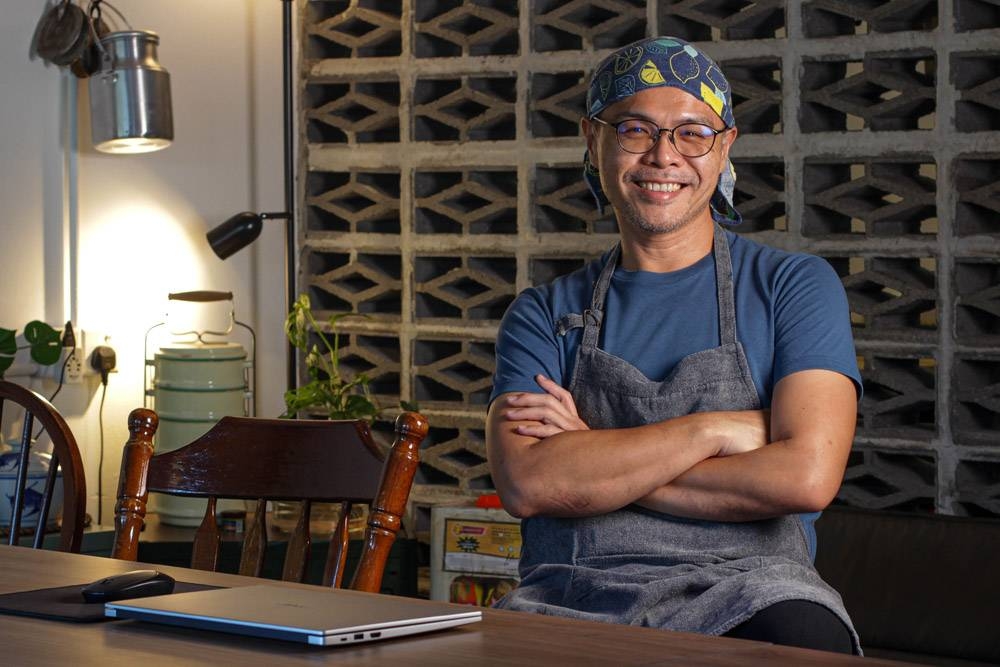
Tee explains further: "Making fresh dishes in a small volume is not sufficient to maintain the food consistency when we switch to cooking in bulk. Therefore the first six months were spent on repeated testing and multiple failures to get the revised recipe correct.”
Cooking in a larger central kitchen also meant developing entirely new skill sets such as proper methods of volume cooking, refining the accuracy of seasoning and experimenting with different ways of packing the food products for delivery.
Different foods, Tee learned, had different cooking points. He shares, "For instance, a simple dish such as Loh Mai Gai can be challenging just to get the texture and taste to be exactly right. We have to monitor how long the glutinous rice needs to be soaked. How long to steam to maintain a good texture after reheating, too.”
In order not to spoil the original texture and taste of the dish after the customer reheats it at home, Tee tries not to overcook during the first pass. He says, "Take the Red Wine Braised Chicken as an example: we have to monitor the braising duration to avoid losing the texture of chicken’s tenderness when it is reheated later.”
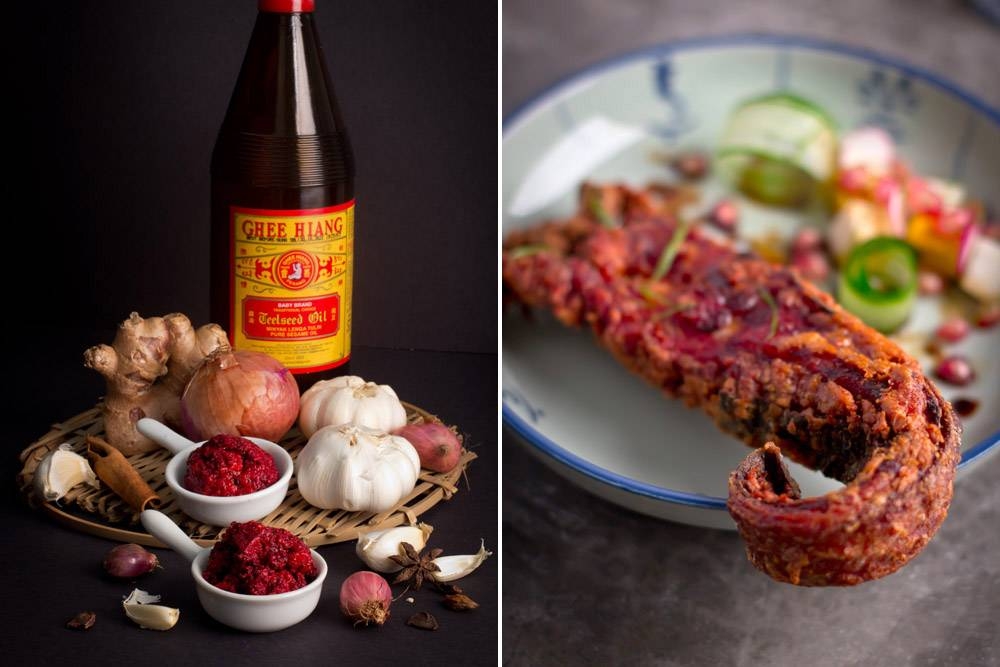
Conversely, some Fook Chow dishes taste even better if they are cooked and packed frozen before being reheated again. Tee enthuses, "The flavours of multiple ingredients in our Eight Treasures or Fook Chow Sweet Glutinous Rice with Yam Paste will become more complex after reheating.”
The Sitiawan-born foodie has been living in KL for the past 20 years but still rues how he hardly gets to taste traditional Fook Chow dishes in the city. He shares, "Fook Chow heritage represents ‘my kampung’ to me. Our food culture, the Fook Chow language and the people — that’s why preserving the taste of Fook Chow means so much to me. To remember the dishes of my childhood and most importantly, my mum’s cooking.”
One of Ruixiliangpin’s most unique dishes is their Fook Chow Sweet & Sour Steamed Pork Ribs or Fúzhōu suān tián làn páigǔ in Mandarin. Tee warns against taking its Chinese name too literally: "Funnily, làn (爛) means ‘rotten’ in English but I believe kampung folks named it so due the super soft texture of pork ribs after steaming for 2-3 hours.”
Sweet and sour pork ribs isn’t an uncommon dish among Chinese communities in Malaysia but Tee insists his Fook Chow version is different from other Chinese dialect groups.
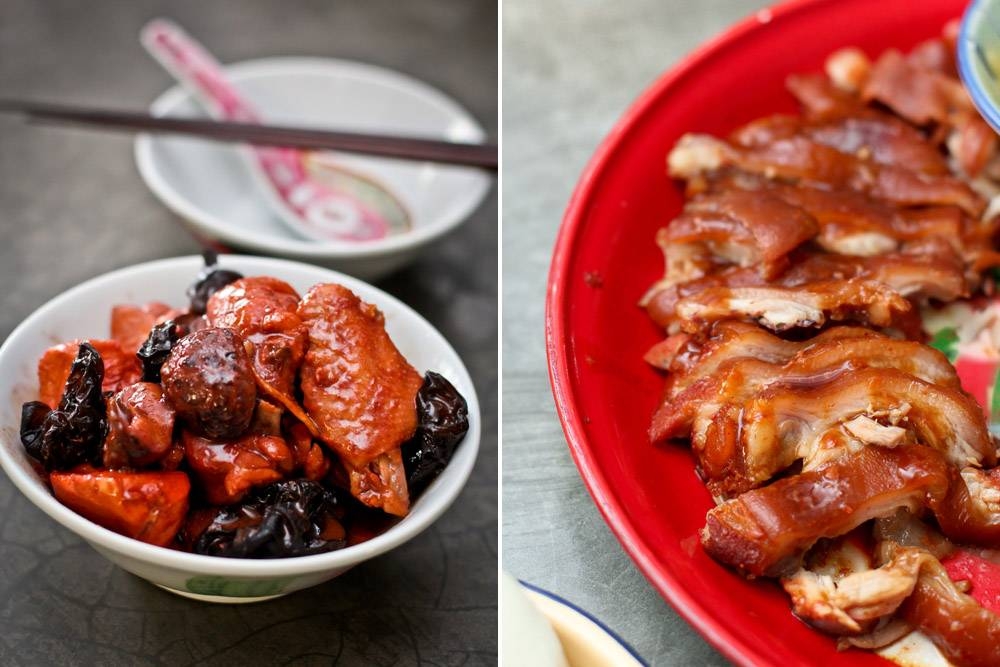
He explains, "Fook Chow cuisine is more on the sweet side but this dish has a great combination of the sweet and sour from the sauce, the saltiness from Sìchuān zhàcài (Sichuan pickled mustard) and the nutty-earthiness the yams and potatoes.”
Ruixiliangpin’s Sweet & Sour Steamed Pork Ribs employs a variety of cooking methods including marination of the meat, deep frying and a long steaming process until every flavour is layered together harmoniously.
Tee says, "It’s the taste and memories of where I grew up. So far I haven’t had this taste elsewhere except my kampung in Sitiawan. Even the Fook Chow people from Sibu in Sarawak don’t not cook this dish in such a way.”
The name Ruixiliangpin can be quite a mouthful but it is full of auspicious meaning. Tee explains, "Ruì (瑞) means ‘propitious’ in Chinese whereas Xī (熙) denotes ‘prosperous, healthy and thriving’ — it comes from my given name Yōng Xī (庸熙) that my grandfather gave me.”
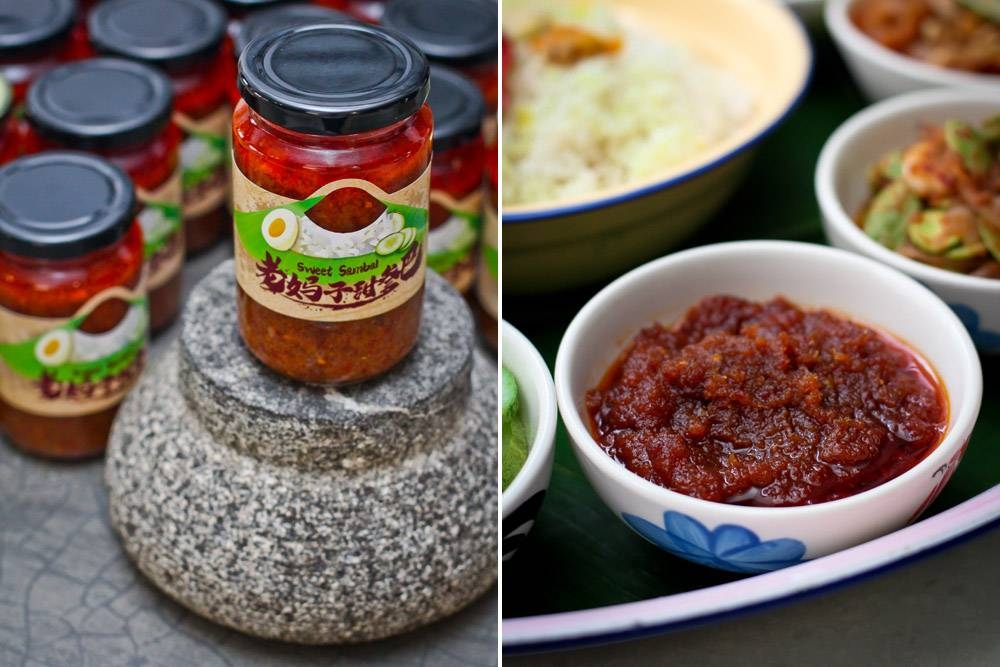
Liáng pǐn (粮品), on the other hand, can simply be understood as "good food” or as Tee puts it: "It refers to honest food made from the heart, using only clean and premium ingredients and seasoning with no artificial preservatives or chemical added. Our hope is that everyone can eat well and eat safely.”
It’s perhaps this overarching philosophy of Ruixiliangpin — to have food lovers enjoy authentic, kampung-style Fook Chow cuisine, free of modern commercial compromises — that will extend the fledgling business’s reach.
Remember, this is how some of the big food companies start — from Hong Kong’s Lee Kum Kee, famed for their oyster sauce, to California-based Huy Fong’s sriracha sauce, started by a Vietnamese-Chinese immigrant — and that is from humble beginnings.
One fine day in the future (hopefully near future), when we walk into any supermarket, be it the friendly neighbourhood grocer in your taman or an Asian specialty store in New York or London, there could be an entire aisle dedicated to Fook Chow favourites from Ruixiliangpin.
Indeed, the idea of getting a pack of Fook Chow sweet and sour ribs from a 24-hour konbini in Tokyo? Tantalising beyond words.
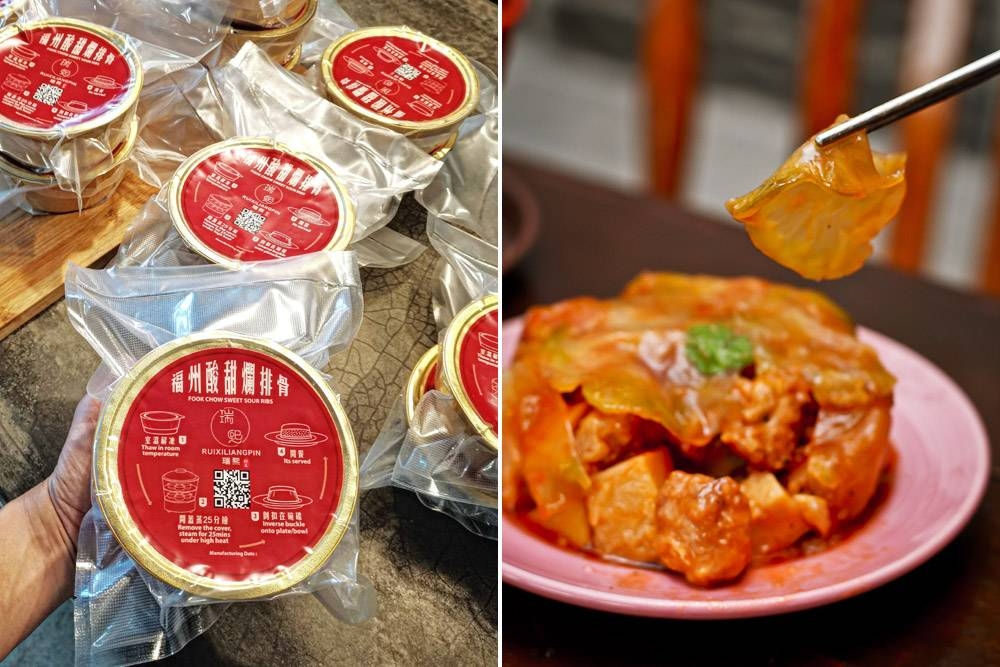
Ruixiliangpin 瑞熙粮品
Web: ruixiliangpin.com






















